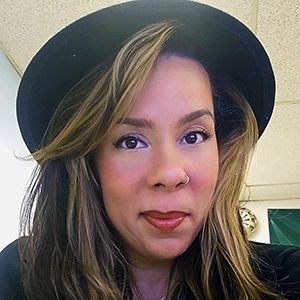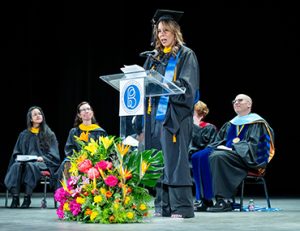
Angelica Perez
Progressive Leadership '25
This journey isn’t just about becoming a better educator. It’s also about becoming a more grounded and intentional version of yourself.
Angelica Perez has spent over two decades in early childhood learning settings, including eight years in leadership roles. As the ECE programs director at Goddard Riverside Community Center, Angelica worked to create environments where all students could thrive. She implemented systems and policies, including programs that built long-term and sustainable practices. She also mentored teaching staff and facilitated collaborative, reflective professional development.
Her leadership efforts are motivated by her desire to provide social-emotional learning to everyone—both young students and their teachers.
“Social-emotional learning is the foundation of all education,” she said. “If children have that, then they can focus, self-regulate, manage their emotions, and learn and retain better.”
 In 2023, Angelica enrolled in Bank Street Graduate School of Education’s Progressive Leadership Program and, in 2025, she was selected as a student speaker at her commencement ceremony. In her speech, she shared that just a month into her graduate program, she received a cancer diagnosis which led to four surgical procedures. For the rest of her time as a graduate student, she was not only studying, but she was also in recovery. She was supported in class by both her cohort and her twin sister Yesenia, which led to Angelica’s classmates adopting Yesenia as an unofficial cohort member. Acknowledging her sister’s support throughout her Bank Street experience, Angelica invited Yesenia to cross the stage with her at commencement.
In 2023, Angelica enrolled in Bank Street Graduate School of Education’s Progressive Leadership Program and, in 2025, she was selected as a student speaker at her commencement ceremony. In her speech, she shared that just a month into her graduate program, she received a cancer diagnosis which led to four surgical procedures. For the rest of her time as a graduate student, she was not only studying, but she was also in recovery. She was supported in class by both her cohort and her twin sister Yesenia, which led to Angelica’s classmates adopting Yesenia as an unofficial cohort member. Acknowledging her sister’s support throughout her Bank Street experience, Angelica invited Yesenia to cross the stage with her at commencement.
Here are highlights of our recent conversation with Angelica and her sister.
To what do you attribute your success as a graduate student?
Angelica: I honestly don’t think I could have made it through this season of my life—grad school, recovery, and everything in between—without my sister. She didn’t just help me manage tasks, she helped me stay grounded. She stepped in without hesitation, and her support went beyond the physical: It was emotional and intellectual. Because of that, I was able to show up for myself, for learning, and for my healing.
Yesenia: it was mainly about taking on the everyday responsibilities so she could focus fully on just herself. Body doubling is kind of huge for us. We seem to get more done when we have somebody in our presence, so I’d just be in the same room with her with my headphones on, doing my own thing. And she hasn’t had to do laundry in over a year!
What advice do you have for family members for supporting someone during graduate school?
Y: It’s the little, everyday tasks that go unnoticed, but take up the most time and energy. They accumulate, and helping alleviate those things is a big support. I was blessed to have the opportunity to give that much of my time. And then, just be consistent and thoughtful. Have empathy and understand the bigger picture.
A: When I was in grad school, especially while juggling other life challenges, my mental load was already heavy. Having someone quietly take care of the basics—the meals, the laundry—gave me the space to breathe and focus. My advice to family members is to show up in the little ways and do it with love and grace. Ask what your loved one’s needs are and really listen to them. Support doesn’t have to be perfect or these grand gestures. It just has to be steady and rooted with care and love. Yesenia definitely provided that.
Do you have any other advice for current students?
A: Be unapologetically vulnerable and true to yourself. This experience will challenge you to reflect deeply, so lean into it 100%. Your story, your values, your voice—they matter, so don’t be afraid to bring them into the classroom. Be open to collaboration and new ideas. Some of the most powerful learning comes from listening to others and growing together. My cohort and our professors became more than classmates and instructors. They became an extension of me throughout this whole journey. They’re now a part of both my personal and professional support system. We shared our stories, our struggles, our growths. Those connections continue to ground and guide me in my leadership.
Most importantly, my advice is to give yourself grace. This journey isn’t just about becoming a better educator. It’s also about becoming a more grounded and intentional version of yourself.
How has Bank Street impacted your family?
A: The Bank Street approach opened up conversations with my sister and my family about our shared history and how our life circumstances had an impact on how we were raised. I came to understand the difficult choices my parents made to be present in our lives and to begin breaking generational patterns. What I was learning at Bank Street also created opportunities for honest conversations about what support looks like and how we can show up for one another in meaningful ways.
Check out these snippets from our conversation with Angelica to learn more about her journey and her experience at Bank Street.